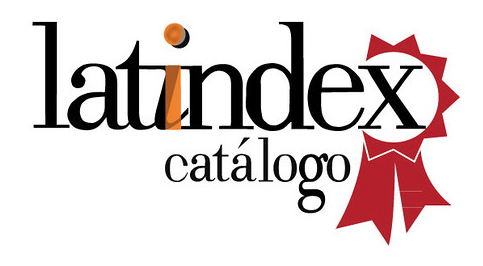The use of AI tools and their impact on the assessment of postgraduate courses in the technological field
DOI:
https://doi.org/10.20868/abe.2024.3.5407Keywords:
Artificial Intelligence, Education, Evaluation, Learning, TechnologyAbstract
This study analyzes the impact of using freely accessible generative AI in the evaluation of students in the Master's Program in Renewable Energies at Universidad Europea de Canarias, with the aim of proposing strategies to ensure that students maintain the necessary knowledge and technical skills. The case study focused on the "Renewable Energy Startups" module, worth 6 ECTS, where students completed practical activities with the assistance of AI tools.
The evaluation of AI-generated results was conducted using the same rubric applied in a previous edition, when these tools were not yet available. Additionally, the AI-generated responses to exam questions based on the official syllabus were analyzed, and the time spent was compared with the minimum times outlined in the university's study plan.
The findings show that, while AI can reduce the time needed to complete tasks, it is essential to redesign activities to integrate AI in an ethical and effective way. When approached correctly, AI can become a tool that enhances learning, improving students' technical skills without compromising the depth of knowledge.
Downloads
References
[1] Ocaña-Fernández, Y., Valenzuela-Fernández, L.A., Garro-Aburto, L.L. (2019). Artificial intelligence and its implications in higher education. Propósitos y Representaciones, vol. 7(2), pp. 536-568. https://doi.org/10.20511/pyr.
[2] Chen, L., Chen, P., Lin, Z. (2020). Artificial Intelligence in Education: A Review. IEEE Access, vol. 8, pp. 75264-75278. https://doi.org/10.1109/ACCESS.2020.2988510.
[3] Chen, X., Xie, H., Zou, D., Hwang, G.-J. (2020). Application and theory gaps during the rise of Artificial Intelligence in Education. Computers and Education: Artificial Intelligence, vol. 1, pp. 100002. https://doi.org/10.1016/j.caeai.2020.100002.
[4] Lo, C.K. (2023). What Is the Impact of ChatGPT on Education? A Rapid Review of the Literature. Education Sciences, vol. 13(4), pp. 410. https://doi.org/10.3390/educsci13040410.
[5] Tlili, A., Shehata, B., Adarkwah, M.A., Bozkurt, A., Hickey, D.T., Huang, R., Agyemang, B. (2023). What if the devil is my guardian angel: ChatGPT as a case study of using chatbots in education. Smart Learning Environments, vol. 10(1), pp. 15. https://doi.org/10.1186/s40561-023-00237-x.
[6] Zhai, X. (2022). ChatGPT User Experience: Implications for Education. SSRN. https://doi.org/10.2139/ssrn.4312418.
[7] Pedreño, O. (2024). La universidad española y la Inteligencia Artificial. Universidad, Sí. https://www.universidadsi.es/la-universidad-espanola-y-la-inteligencia-artificial/.
[8] Hosseini, M., Rasmussen, L.M., Resnik, D.B. (2023). Using AI to write scholarly publications. Accountability in Research, vol. 1, pp. 1-9. https://doi.org/10.1080/08989621.2023.2168535
[9] Paladines, J., Ramirez, J. (2020). A Systematic Literature Review of Intelligent Tutoring Systems with Dialogue in Natural Language. IEEE Access, vol. 8, pp. 164246-164267. https://doi.org/10.1109/ACCESS.2020.3021383.
[10] Shum, H., He, X., Li, D. (2018). From Eliza to XiaoIce: Challenges and opportunities with social chatbots. Frontiers of Information Technology & Electronic Engineering, vol. 19(1), pp. 10-26. https://doi.org/10.1631/FITEE.1700826.
[11] Chen, X., Hwang, G.-J., et al. (2020). AIEd and Machine Learning. Computers and Education, vol. 1, pp. 200-216.
[12] Nam, B. H., Bai, Q. (2023). ChatGPT and its ethical implications for STEM research and higher education: A media discourse analysis. International Journal of STEM Education, vol. 10(1), pp. 66. https://doi.org/10.1186/s40594-023-00452-5.
[13] Berrezueta-Guzman, J., Malache-Silva, L., Krusche, S. (2023). ChatGPT-4 as a Tool for Reviewing Academic Books in Spanish. arXiv. https://doi.org/10.48550/ARXIV.2309.11231.
[14] García-Riaza, B., Iglesias-Rodríguez, A. (2016). Mobile devices as learning tools: Present and prospective use by future professionals of education. Proceedings of the Fourth International Conference on Technological Ecosystems for Enhancing Multiculturality, pp. 637-641. https://doi.org/10.1145/3012430.3012586.
[15] Desaire, H., Chua, A.E., Isom, M., Jarosova, R., Hua, D. (2023). Distinguishing academic science writing from humans or ChatGPT with over 99% accuracy using off-the-shelf machine learning tools. Cell Reports Physical Science, vol. 4(6), pp. 101426. https://doi.org/10.1016/j.xcrp.2023.101426.
[16] García-Riaza, B., Iglesias-Rodríguez, A. (2016). ICT and Structural Change in Companies. Dominio de las Ciencias, vol. 4(1), pp. 499-512. https://doi.org/10.23857/dc.v4i1.762.
[17] Pedreño, O., García, E. (2024). AI and University: Ethical Approaches. University Press.
[18] Dimitriadou, E., Lanitis, A. (2023). Artificial Intelligence in Smart Classrooms. Smart Learning Environments, vol. 10(1), pp. 12. https://doi.org/10.1186/s40561-023-00231-3.
[19] Montenegro-Rueda, M., Fernández-Cerero, J., Fernández-Batanero, J.M., López-Meneses, E. (2023). Impact of the Implementation of ChatGPT in Education: A Systematic Review. Computers, vol. 12(8), pp. 153. https://doi.org/10.3390/computers12080153.
[20] Owoc, M. L., Sawicka, A., & Weichbroth, P. (2021). Artificial Intelligence Technologies in Education: Benefits, Challenges and Strategies of Implementation. In M. L. Owoc & M. Pondel (Eds.), Artificial Intelligence for Knowledge Management (pp. 37-58). Springer International Publishing. https://doi.org/10.1007/978-3-030-85001-2_4
Downloads
Published
Issue
Section
License
Copyright (c) 2025 Autor / BY-NC-ND

This work is licensed under a Creative Commons Attribution-NonCommercial-NoDerivatives 4.0 International License.
ABE (Advances in Building Education / Innovación Educativa en Edificación) does not charge authors for processing or publishing an article and provides immediate Open Access to its content. All content is available free of charge to the user or his institution. Users are permitted to read, download, copy, distribute, print, search or link to the full text of articles, or use them for any other lawful purpose, without prior permission from the publisher or author. This is in accordance with the BOAI definition of open access.
- Authors retain the copyright and grant to the journal the right to a Creative Commons attribution / Non-Commercial / Non-Derivative 4.0 International (CC BY NC ND) License that allows others to share the work with an acknowledgement of authorship and non-commercial use.
- Authors may separately establish additional agreements for the non-exclusive distribution of the version of the work published in the journal (for example, placing it in an institutional repository or publishing it in a book).
Unless otherwise indicated, all contents of the electronic edition are distributed under a Creative Commons license.














